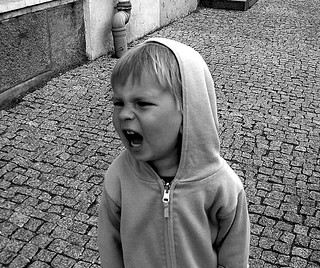 |
| scream and shout (Photo credit: mdanys) |
Attention problems (behavior problems including inattention, disorganization, impulsivity, and hyperactivity) are widely thought to reflect deficits in executive functions (EFs). However, it is unclear whether attention problems differentially relate to distinct EFs and how developmental stability and change predict levels of EFs in late adolescence. We investigated, in an unselected sample, how teacher-rated attention problems from ages 7 to 14 years related to three correlated but separable EFs, measured as latent variables at age 17. Attention problems at all ages significantly predicted later levels of response inhibition and working memory updating, and to some extent set shifting; the relation to inhibiting was stronger than the relations to the other EFs or IQ. Growth models indicated that attention problems were quite stable in this age range, and it was the initial levels of problems, rather than their changes across time, that predicted later EFs. These results support the hypothesis that attention problems primarily reflect difficulties with response inhibition.
Greater Attention Problems During Childhood Predict Poorer Executive Functioning in Late Adolescence


No comments:
Post a Comment